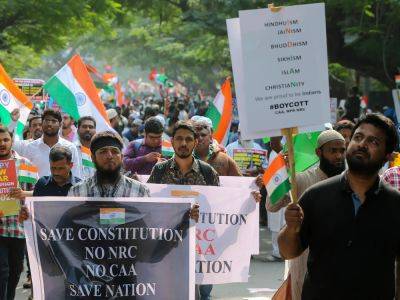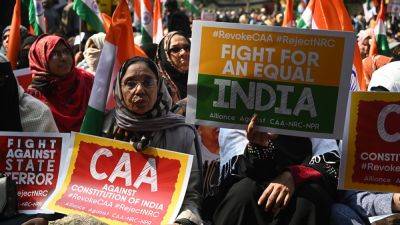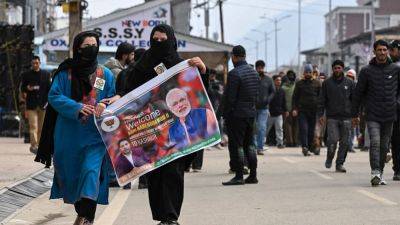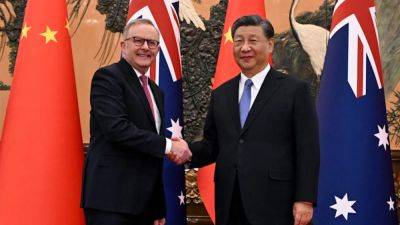Rising internet shutdowns in India spark fears of authoritarianism before election
For the past 10 days, 20-year-old Kartika Singh, a medical student from Ambala, has been gripped by a mix of frustration and anxiety.
Singh’s inability to access her MedCalc application, a vital resource for medical students, has severely disrupted her preparations for the coming exams.
While the government’s rationale behind the internet shutdown is to combat fake news as protest violence between farmers and police escalates, analysts and critics are warning the blanket digital ban is an alarming authoritarian move ahead of the general election.
Over the past week, the protest scenes have turned chaotic with police using tear gas, rubber bullets and what some claim are pellet guns against demonstrators. On Wednesday, a 21-year-old farmer was reportedly killed in the clashes after he was struck by a bullet fired by the Haryana police. Farmers halted their protest for two days following the youth’s death.
The government initially prolonged the suspension of mobile internet from February 13 to February 15. However, on Wednesday, it further extended the suspension until Friday.
“I can’t fathom why anyone in today’s world would block the internet and make people suffer so much. As a student, my time is precious, and I need internet access for many topics in my studies. Without it, I feel like I’m in jail,” Singh lamented.
Like her, thousands in the northern regions of India’s Punjab and Haryana are struggling with the internet blackout. The Indian government’s justification for the move is to mitigate the “spread of misinformation and rumours across various social media platforms”.
Many individuals who spoke to This Week in Asia expressed dissatisfaction and a sense of injustice over suspended internet services, arguing the







